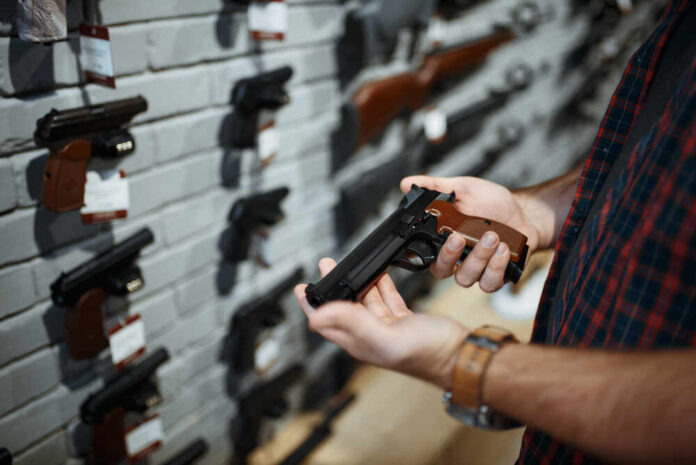
In a decisive move resonating with constitutionalists, a federal appeals court on Wednesday struck down a California law limiting certain gun advertisements. The U.S. 9th Circuit Court of Appeals found that the California legislation, which restricted firearm ads considered “attractive to minors,” had crossed the line — infringing on Second Amendment rights and First Amendment freedoms.
U.S. Circuit Judge Kenneth Lee, part of the 9th Circuit panel, penned that “there is no evidence in the record that a minor in California has ever unlawfully bought a gun, let alone because of an ad.” Lee pointed out that the state failed to provide any proof that such advertisements “encourage illegal or violent gun use among minors.” His colleague, Judge Lawrence VanDyke, went further, saying the law was part of California’s effort to “legislate views about firearms.”
‘Muzzling speech’: Federal appeals court shoots down California gun ad law https://t.co/lLUtZ64bNb
— Bo Snerdley (@BoSnerdley) September 14, 2023
This case isn’t merely about gun rights, as important as those are. It’s a warning against the chilling creep of governmental overreach that wants to decide which kinds of speech are acceptable or unacceptable. As Judge Lee noted, “The First Amendment demands more than good intentions and wishful thinking to warrant the government’s muzzling of speech.”
To put the issue in context, consider that California already has some of the strictest gun control laws in the nation. Governor Gavin Newsom, who championed the now-overturned legislation, argued it was necessary because the U.S. Supreme Court had been rolling back “important gun safety protections.” Yet, the appeals court determined that California’s law did “not directly and materially advance” its purported goals of reducing gun violence or illegal gun use among minors.
What’s even more perplexing is that the law seemed to be solving a problem that didn’t exist. It’s illegal for minors to purchase guns in the first place. As the court mentioned, there was “no evidence in the record that a minor in California has ever unlawfully bought a gun, let alone because of an ad.”
Critics of the law, including sporting and gun rights groups, had initially sought an injunction to halt the law temporarily. These groups argued that the legislation hindered the marketing of lawful gun events and recruitment for safe youth sport-shooting and hunting programs—a First Amendment issue. A lower court denied the request, but the appeals court reversed that decision, effectively sending the case back for reconsideration.
So what we’re left with is a scenario where the state had been effectively muzzling lawful speech, trying to sideline the marketing of legal gun events and recruitment for responsible youth sporting programs. It’s a slippery slope when the government tries to regulate speech based on what it deems socially or morally acceptable, especially involving constitutionally protected rights like gun ownership.
As the case returns to the lower court for another look, this ruling is an important reminder. When the government starts chipping away at one constitutional right, it sets a dangerous precedent for eroding others.
































